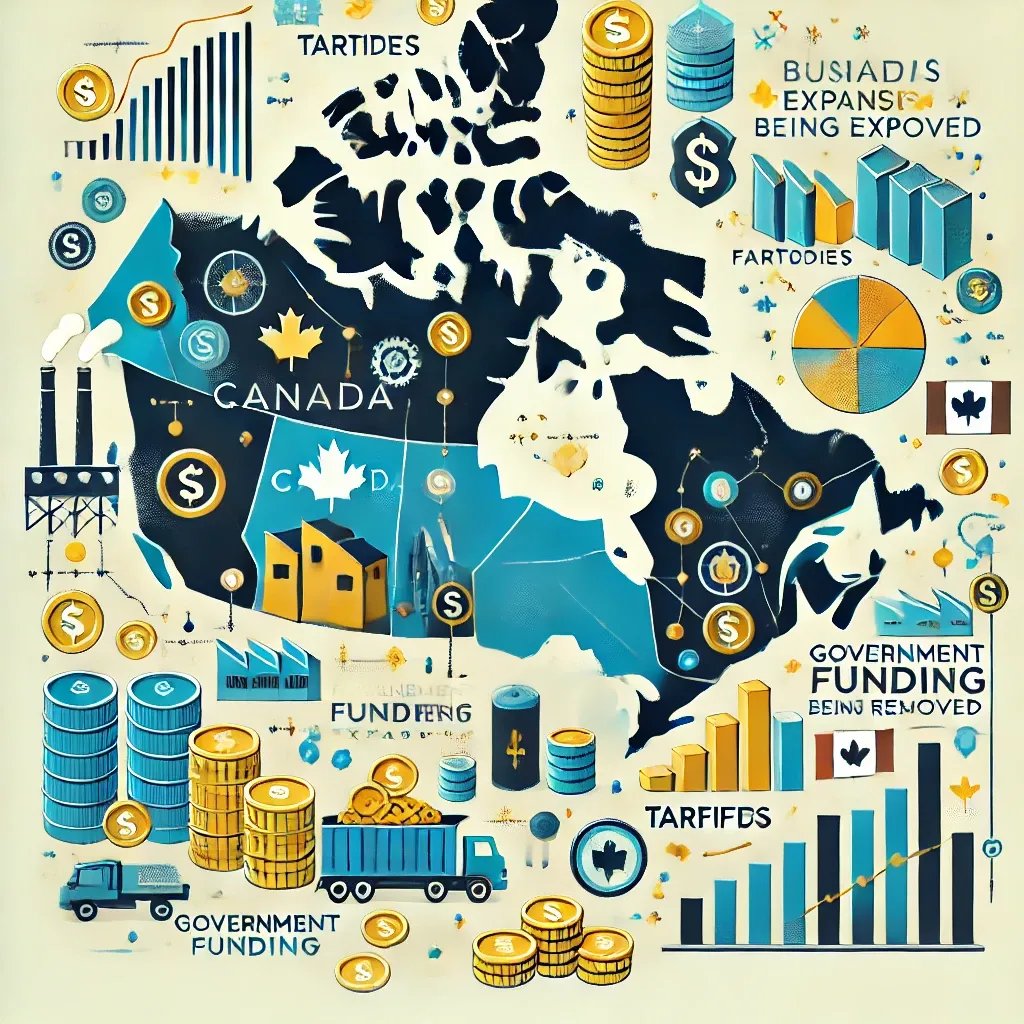
In today’s shifting global economy, tariffs are a key factor influencing business decisions, affecting everything from supply chain costs to market access. While international trade policies continue to evolve, Canadian businesses must look inward for opportunities to strengthen their operations. One of the most effective ways to mitigate the impact of tariffs is by leveraging financing and support programs for domestic expansion. By accessing strategic funding, businesses can invest in local production, optimize supply chains, and reduce dependency on volatile global markets.
The Role of Tariffs in Business Strategy
Tariffs are taxes placed on imported or exported goods, often designed to protect domestic industries or retaliate against trade restrictions. While they can create obstacles for businesses reliant on foreign suppliers, they also present an opportunity to:
- Encourage local manufacturing and sourcing: Higher import costs push companies to seek domestic suppliers, fostering economic growth.
- Drive investment in Canadian industries: Tariff-related pressures highlight the need for stronger domestic capabilities in sectors such as technology, agriculture, and advanced manufacturing.
- Strengthen supply chain resilience: Companies that reduce reliance on international imports can better withstand disruptions like geopolitical instability or global supply chain crises.
Financing and Support for Domestic Expansion
Expanding within Canada requires financial resources to cover equipment, labor, infrastructure, and technology investments. Fortunately, Canadian businesses have access to various government and private-sector programs designed to facilitate domestic growth.
1. Government Grants and Incentives
The Canadian government offers several programs that help businesses scale up and adjust to changing trade environments. Some key funding opportunities include:
- Canada Small Business Financing Program (CSBFP): Helps businesses access loans for equipment and property expansion.
- Strategic Innovation Fund (SIF): Provides funding for businesses investing in research, development, and manufacturing capabilities.
- Regional Development Agencies (RDAs): Offer location-specific grants and business expansion support across Canada.
- Canadian Agricultural Partnership (CAP): Supports domestic agricultural producers facing tariff-related challenges.
2. Business Development Bank of Canada (BDC) Financing
BDC offers tailored financial solutions for businesses looking to expand domestically, including:
- Growth capital loans to finance expansions, acquisitions, or infrastructure improvements.
- Working capital solutions to help businesses manage cash flow and navigate trade uncertainties.
- Technology financing to support investment in automation and supply chain optimization.
3. Export Development Canada (EDC) Support
While EDC is known for helping businesses expand internationally, its financial tools also support domestic operations, including:
- Credit insurance to protect against payment risks when selling within Canada.
- Loan guarantees that help businesses secure funding for expansion.
- Market entry advisory services to assist companies looking to expand their customer base across provinces.
4. Private-Sector and Industry-Specific Financing
Beyond government programs, many banks, credit unions, and industry organizations provide financing for businesses responding to tariff-related challenges. These include:
- Sector-focused investment funds in industries like manufacturing, technology, and clean energy.
- Angel investor and venture capital networks that support high-growth businesses looking to scale.
- Supply chain financing solutions that help businesses manage procurement costs and logistics more efficiently.
Building a Resilient Domestic Growth Strategy
To successfully expand within Canada while navigating tariffs, businesses should:
- Assess supply chain vulnerabilities: Identify where tariffs impact costs and explore domestic alternatives.
- Develop a funding roadmap: Align financing options with expansion goals to ensure a sustainable growth strategy.
- Leverage partnerships: Work with government agencies, financial institutions, and industry networks to maximize available support.
- Invest in technology and efficiency: Use financing to modernize operations, improve productivity, and reduce long-term costs.
Conclusion
Tariffs create challenges, but they also serve as a catalyst for businesses to invest in domestic expansion. By tapping into government grants, business financing programs, and private-sector funding, Canadian companies can strengthen their operations, reduce reliance on international markets, and create long-term economic stability. Now is the time for businesses to take advantage of these opportunities and position themselves for sustained growth within Canada.
Jenny is a business insurance broker with Waypoint Insurance. She can be reached at 604-317-6755 or jhansen@waypoint.ca. Connect with Jenny on LinkedIn at https://www.linkedin.com/in/jenny-holly-hansen-365b691b/. Connect with Jenny at BlueSky: https://bsky.app/profile/jennyhollyhansen.bsky.social
Jenny Holly Hansen is a cohost with Chris Sturges of the Langley Impact Networking Group. You are welcome to join us on Thursday’s from 4pm to 6pm at: Sidebar Bar and Grill: 100b - 20018 83A Avenue, Langley, BC V2Y 3R4
Tags: #Jenny Holly Hansen #Tariffs #Financing #Domestic Expansion #Imports and Exports #Supply Chain Efficiency #Investment in Canada

